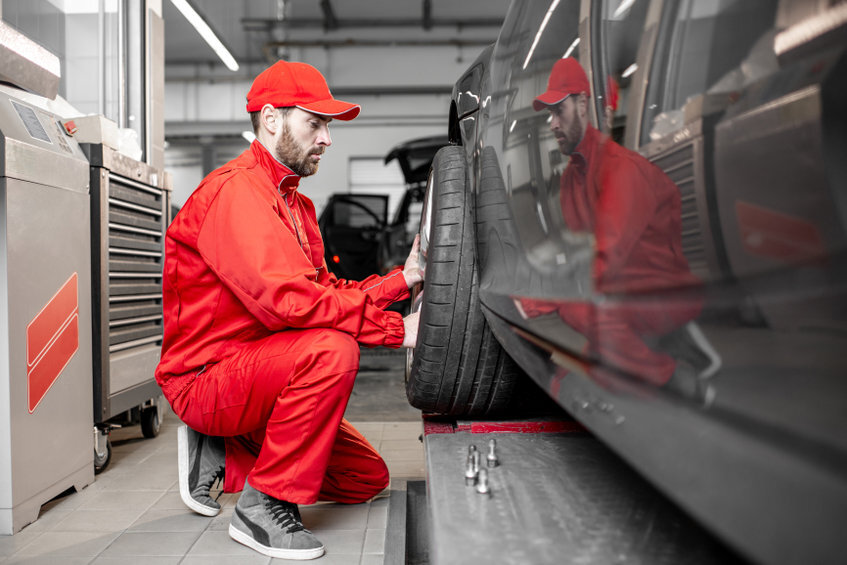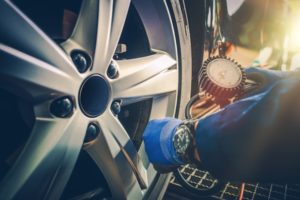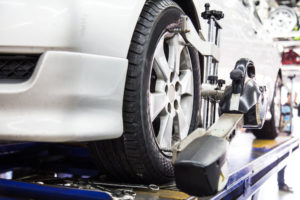Auto Repair Shop Guide to Common Car Repairs in El Paso

Brake Repair
Brake repair is one of the most common auto repair services that mechanics handle on a daily basis, if not the most common. Faulty brakes are a serious safety concern and should be addressed promptly. All the components in your brake system must be working optimally to ensure your vehicle can stop quickly when necessary. Some signs that your brakes may need repair include the following:- Unusual noises while braking (such as squealing, grinding, or rubbing)
- Vibration or pulsing when applying brakes
- Leaking brake fluid (which will appear light yellow or yellowish/brown)
- Longer stopping distances
- Soft or spongy brake pedal
- Dashboard warning light for brakes
Engine/Transmission Cooling System Repair
The cooling system is crucial to a vehicle's operation, as it helps regulate the temperature of the engine and transmission. Without proper cooling, these components can overheat, leading to significant damage and potentially rendering the vehicle inoperable. Regular cooling system maintenance, including checking coolant levels and flushing the system as needed, is essential to ensure the system continues functioning properly. However, occasionally a component within the cooling system may break or wear out. If this happens, it's an auto repair need that you can't put off. There are a couple of warning signs to look out for that would indicate a problem within the engine/transmission cooling system, including the following:- An overheating engine when the vehicle is running
- Low coolant levels
- Strange engine noises
- A bright pink, yellow, or green puddle of leaking coolant under the vehicle
- An intense burning smell when the vehicle is running
- A strong, sweet smell (similar to maple syrup) when the vehicle is running
- Shaking or vibrating engine
- Illuminated "coolant temperature" or "check engine" warning light on the dashboard
Car Battery Replacement
Your car battery is responsible for starting the engine and powering all the electrical systems, including any accessories plugged into the vehicle. Over time, batteries can lose their ability to hold a charge and eventually die. Most vehicle batteries last three to five years, depending on how well they are maintained. If your car doesn't start, it may be due to a dead battery. In such a situation, you typically hear a clicking sound when you turn the key. However, there are some ways to tell when a car battery is about to die before it leaves you stranded. Some warning signs of a failing car battery include the following:- Difficulty starting the engine
- Dim headlights or interior lights
- Corroded car battery terminals
- Swelling or bloating of or leakage from the battery
- Strange odors coming from the battery
- Car battery age exceeds three years old

Engine Tune-Up
An engine tune-up is a very common auto repair service that helps maintain the health of your vehicle. They're usually done to improve the performance and fuel efficiency of the vehicle but can also prevent major and more expensive repairs in the long run. When your car runs well, it emits fewer emissions, helping protect the environment. Most vehicles on the road today should have a tune-up done every 30,000 miles. Some signs indicate that your vehicle needs a tune-up, especially if you can't remember the last time you had one done. These warning signs may include the following:- Decreased fuel economy
- Decreased overall performance
- Decreased acceleration
- Strange noises from the engine while the vehicle is running
- Illuminated check engine light on the dashboard
Wheel Alignment
Wheel alignment is another common auto repair service to ensure that your vehicle's wheels are properly aligned with each other and the road's surface. Wheel alignment involves precisely aligning a vehicle's components, such as tires, axles, and steering components. It's not the wheels that are adjusted but the components attached to them, such as shock absorbers, struts, and springs. This ensures the tires are in the correct position and the vehicle can be driven efficiently and safely. This service is important because it ensures that the vehicle's suspension is working properly and the vehicle is handling as it should. When a vehicle's wheels are properly aligned, it provides a smoother ride for the driver and improves fuel efficiency. Most vehicle experts, including us here at Martin Tire Company in El Paso, Las Cruces, and Alamogordo, recommend checking and adjusting the alignment (as needed) during every other oil change or approximately every 6,000 miles. The following are the warning signs indicating that you may need wheel alignment:- Steering problems when driving (e.g., the steering wheel is off-center when driving straight)
- Noticeable signs of uneven tire wear
- Vehicle veers to one side while driving
- Vibrations in the steering wheel while driving
Book Your Reliable Auto Repair Service
Oil Change and Oil Filter Replacement
One of the most important car maintenance tasks is changing your engine oil regularly. Although technically a preventive maintenance task, many drivers refer to oil changes as another type of car repair. Either way, clean oil keeps your engine protected and running smoothly, reducing the risk of significant engine damage and more expensive repairs. Most auto repair shops recommend changing the oil every 3,000 to 5,000 miles. The exact interval your vehicle needs depends largely on the type of oil used in your engine, your vehicle's mileage, and your driving habits. Your vehicle's owner's manual will specifically recommend how often you should change your oil. Our expert car mechanics will be happy to help you find the best oil change schedule for your vehicle. Some warning signs that your vehicle may be overdue for an oil change service in El Paso include the following:- Dark, gritty, or metallic-smelling oil
- Excessive engine noise or knocking when the vehicle is running
- Low or dirty oil on the oil dipstick
- Darker than usual exhaust smoke
- Sluggish or power-inefficient vehicle performance
- Illuminated check engine or oil warning light

Tire Replacement
Your tires are responsible for keeping your vehicle on the road and providing traction, but no tire lasts forever. Over time, tires wear down and lose their grip, making it difficult to drive safely. Typically, a vehicle needs new tires about every six years or 40,000 miles, whichever comes first. The good news is that a trusted local auto service and tire shop like Martin Tire Company will offer various types of tires to fit your vehicle and meet your needs when it's time for a tire change. Some warning signs that it is time for new tires include the following:- Tread depth less than 2/32 of an inch
- Visual damage or cracking
- Significantly uneven tread wear
- Consistently low tire pressure
- Bulging sidewalls
- Vibration in the steering wheel, vehicle body, or seat


